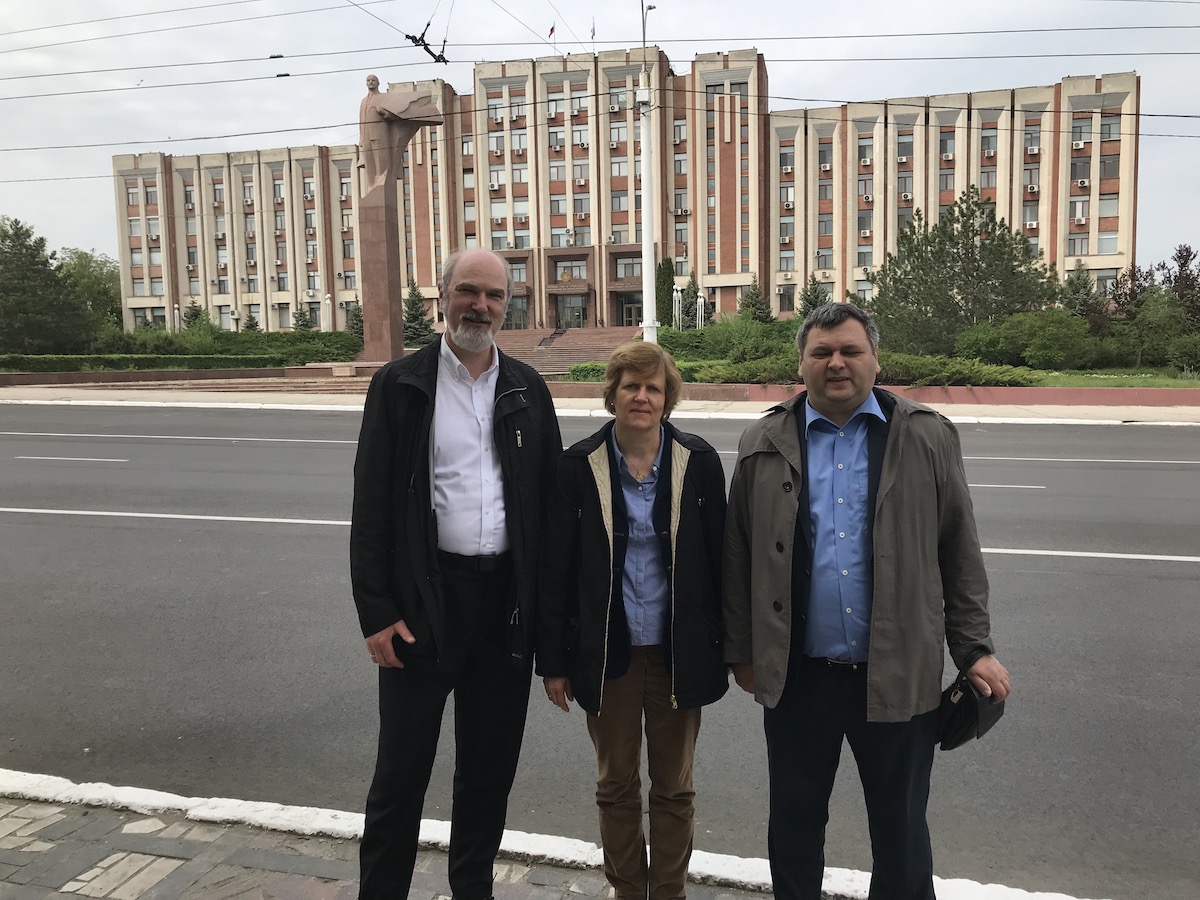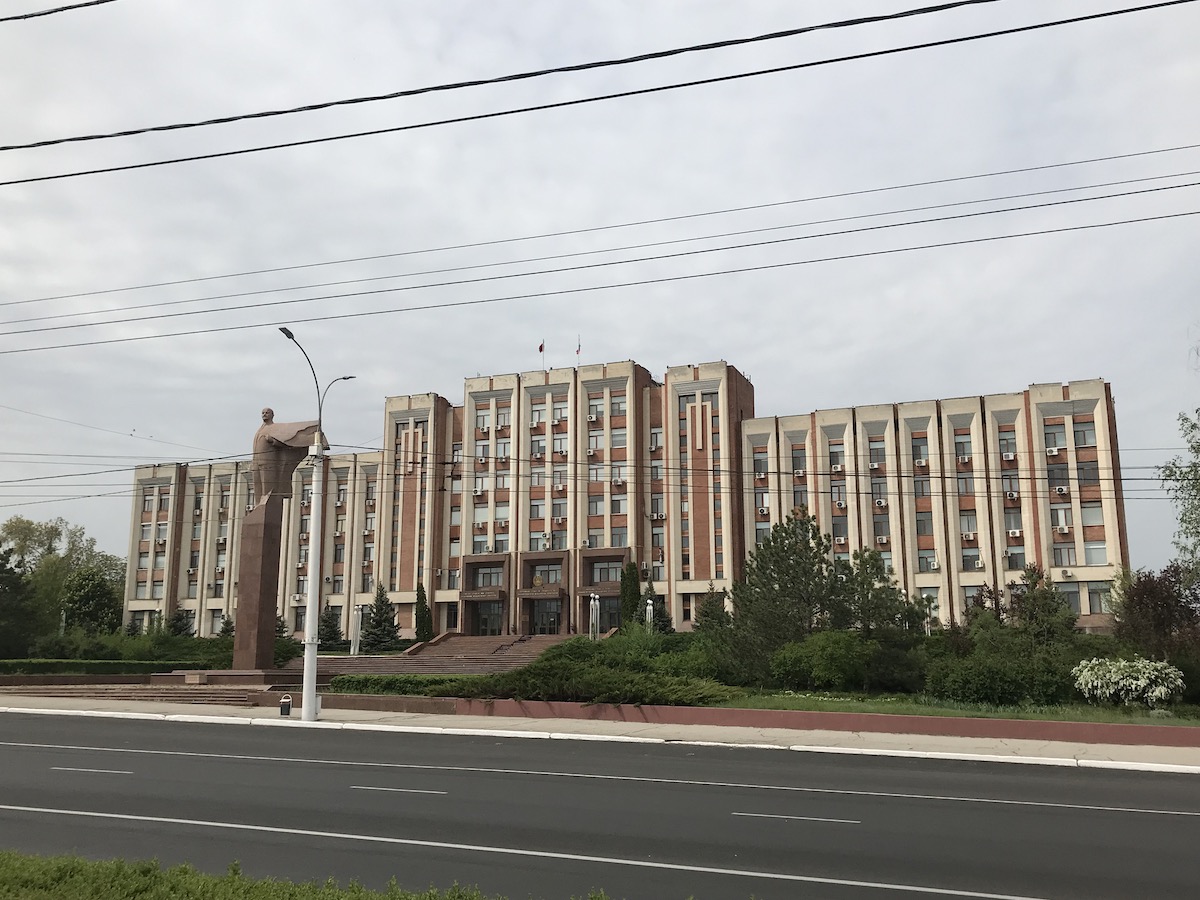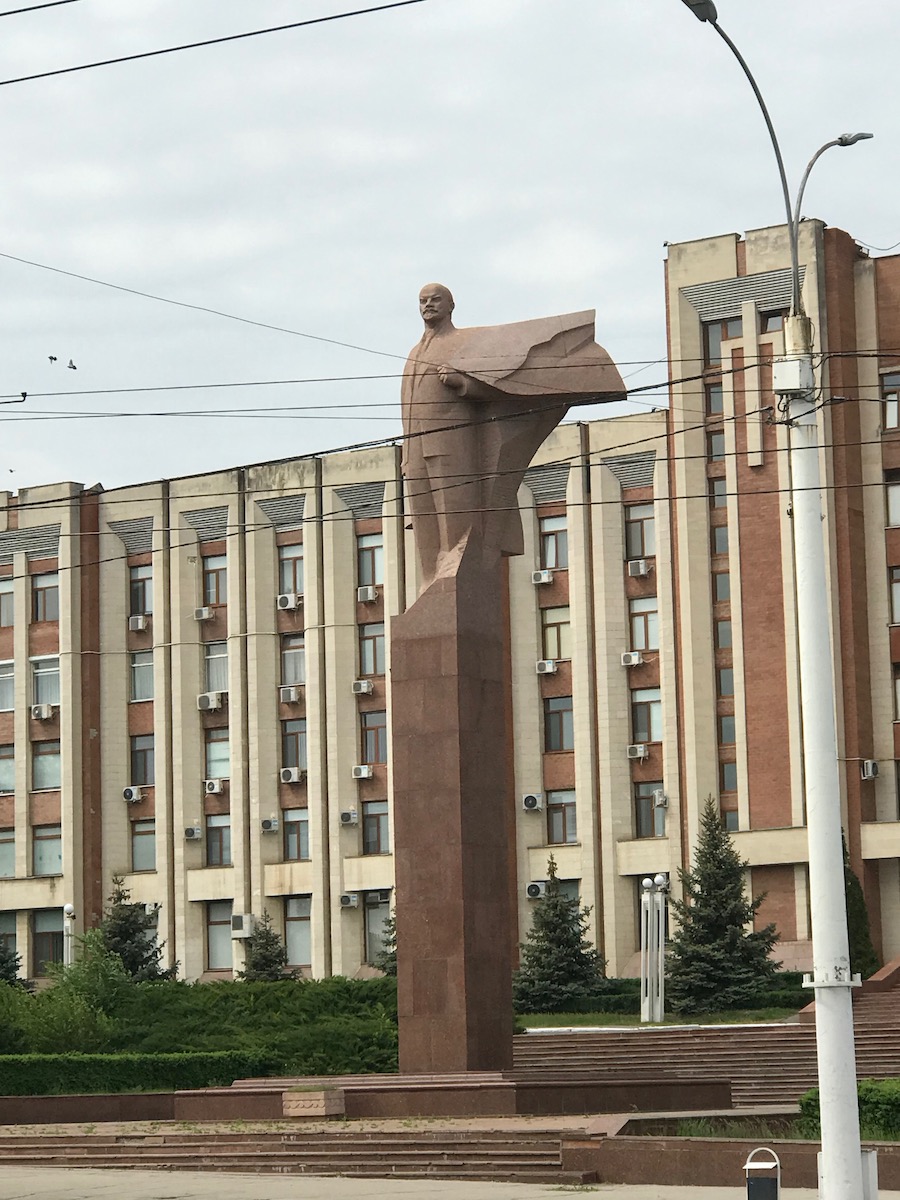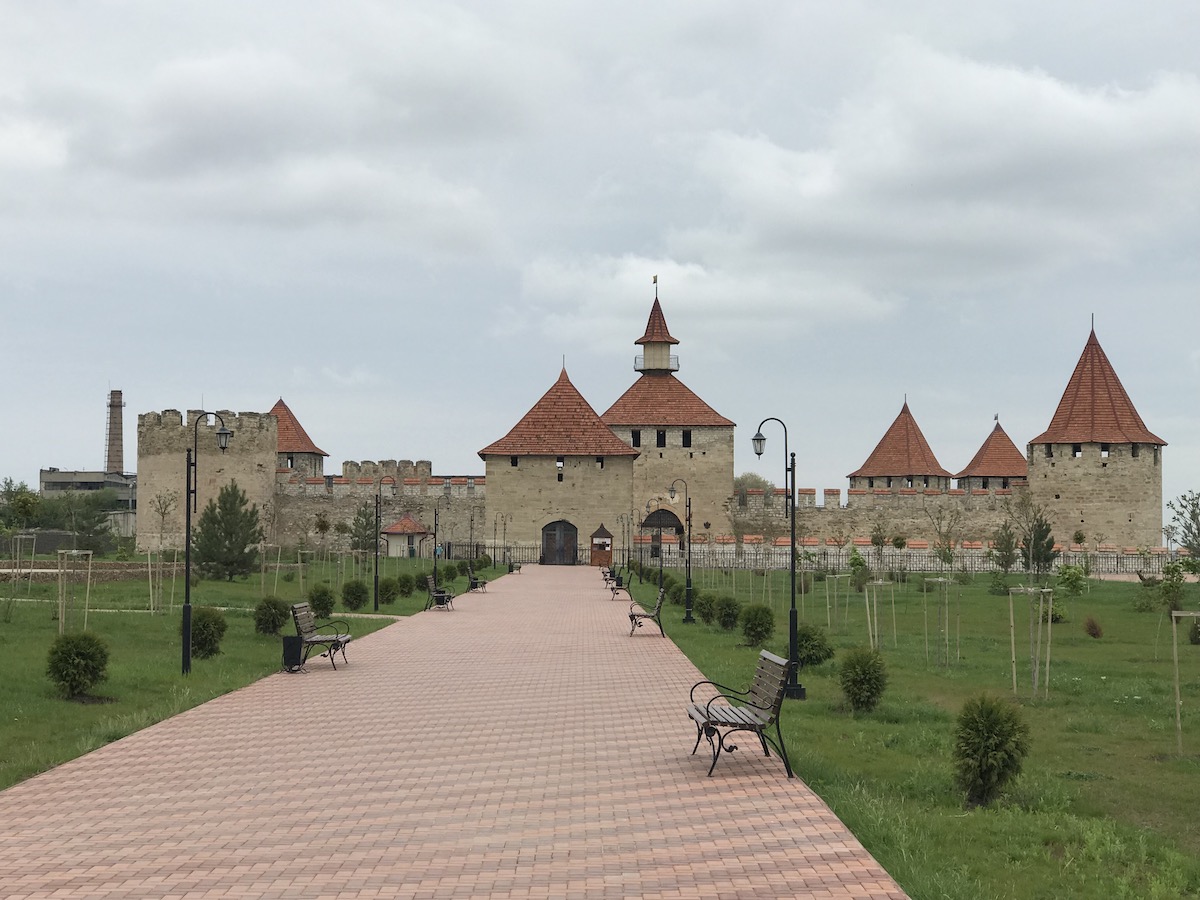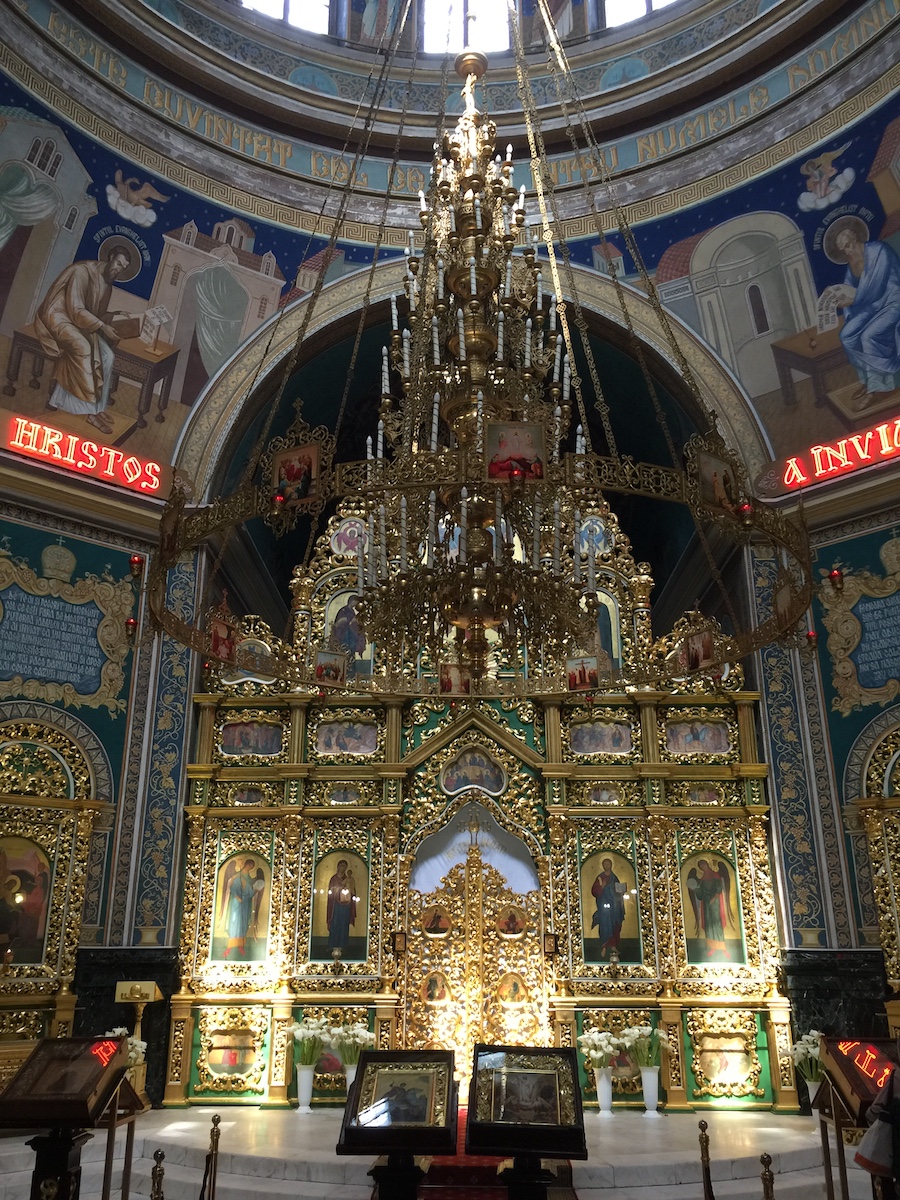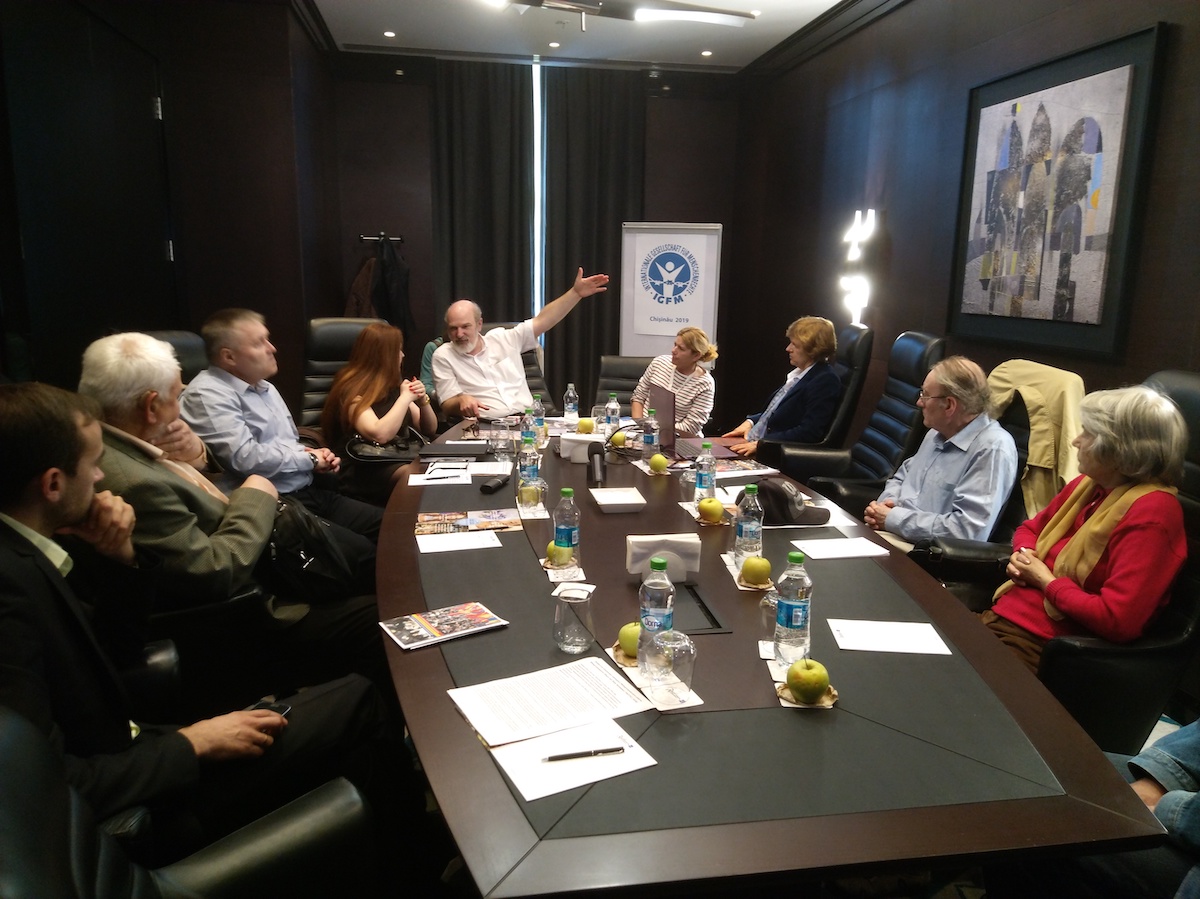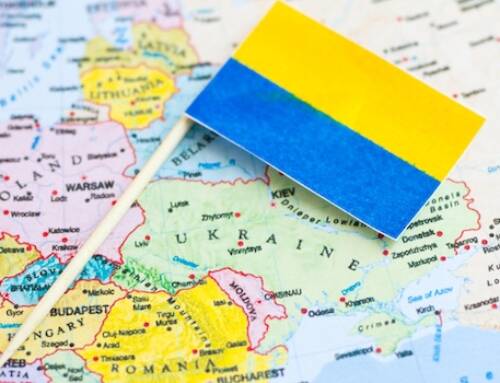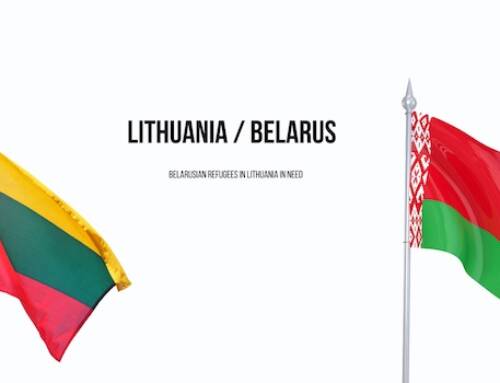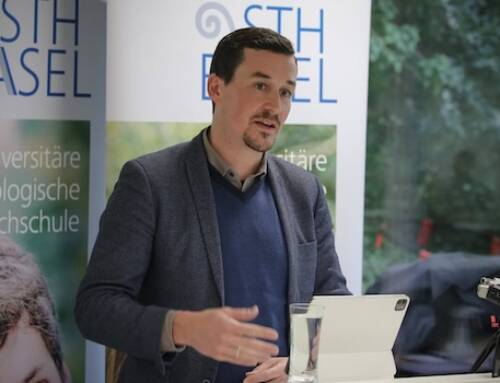NEWS FROM THE PRESIDENT

The President of the ISHR meets with human rights defenders in Moldova and in Transnistria
The following text is a short excerpt of a report by the Chairman of the Moldovan Section of ISHR, Dr. Liubov Nemcinova. The long version of the report can be found here.
The President of the International Society for Human Rights (ISHR), Professor Thomas Schirrmacher, visited the Republic of Moldova from May 4 to 6, 2019. The purpose of the visit was to support Moldovan human rights activists, including the members of the Moldovan Section of the ISHR, as well as on-site study of the state of human rights in the Republic of Moldova, including the unrecognized Pridnestrovian Moldavian Republic (Transnistria). Note that Professor Schirrmacher is well-informed about the current political situation and the human rights activities of non-governmental organizations in the Eastern Partnership countries, including in Moldova. However, during the recent meeting, Moldovan activists completed the picture of the political situation by new details.
During the trip and all the meetings, Professor Thomas Schirrmacher was accompanied by his wife, Professor Christine Schirrmacher. Christine Schirrmacher is a member of the Academic Advisory Board of the Federal Agency for Civic Education as well as a member of the Board of the German Institute for Human Rights. Both positions are on appointment of the German Federal Parliament (Deutsche Bundestag). Besides she several times worked as an expert for the Committee on Human Rights and Humanitarian Aid of the German Bundestag.
Meeting in Tiraspol
On May 5th, there was held a meeting of Prof. Thomas Schirrmacher with representatives of public organizations, business and lawyers in the city of Tiraspol, the capital of Transnistria. The meeting participants related about the current situation in which Transnistrian non-governmental organizations for human rights have to work; They learned about the functioning and structure of the International Society for Human Rights.
Within the discussion of socially significant processes, the participants of the meeting informed Prof. Schirrmacher about human rights observance issues in Transnistria and that some international organizations – involved in the analysis – don’t always objectively interpret the information they dispose of. Active representatives of the civil society in Transnistria know better the situation in the region, as they constantly face human rights violations and try to help various categories of the population: young people, prisoners, gypsies and people with disabilities.
The President of the ISHR noted that obtaining objective information from the people living in Transnistria is an important line of activity of international structures and international human rights organizations, including the ISHR. Therefore, the creation and work of a working group in Tiraspol would be very important and relevant for cooperation with the ISHR.
Meeting with human rights defenders, lawyers and journalists
On May 6th, in Chisinau, there was held a meeting of Prof. Thomas Schirrmacher, President of the International Society for Human Rights (ISHR), with Moldovan human rights defenders, lawyers and journalists. In the course of the rich three-hour conversation, the whole complex of problems associated with regular violations of human rights in the Republic Moldova was discussed.
The meeting participants related the serious deterioration of the situation with respect to human rights. Statistical data from independent international organizations for human rights were reported. According to these data, Moldova is at the level of the poorest African countries in the field of human rights observance. The dominant topic in the speeches of participants was the capture of the Moldovan State by the Democratic Party of Moldova (PDM) and, in particular, by oligarch Vladimir Plahotniuc. “In a situation where the judicial system and the security forces are completely controlled by a small group of people, ordinary people in Moldova feel absolutely powerless and unprotected from the arbitrariness of the authorities” representatives of human rights organizations assert. Speakers noted constant pressure on lawyers by the authorities.
In the light of human rights issues, the President of the ISHR paid special attention to the need to fight corruption in the judicial system of Moldova, “A corrupt judge will never rightly judge another corruptionist … .” There is a clear link between corruption and pressure on human rights activists in Moldova. At the end of the meeting, Thomas Schirrmacher highly appreciated the aspiration of the Moldovan human rights activists to give wide publicity to the facts of human rights violations in Moldova. He urged activists to coordinate efforts as much as possible inside the country and regularly report on violations in Moldova to European human rights institutions. He considers that there is “a huge abyss” between how Moldova represents itself abroad and how the human rights are observed in Moldova.


